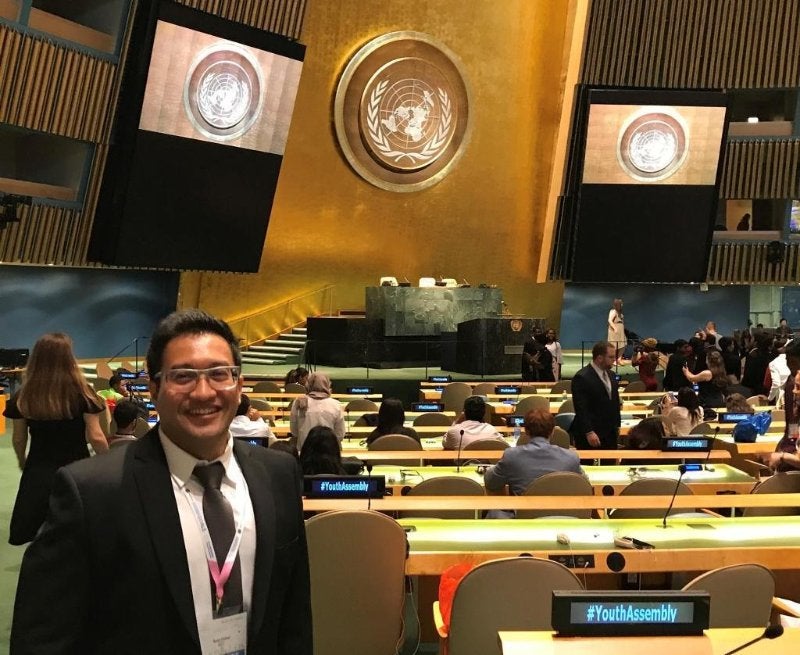
Syed Faisal Aljunied at the 20th Session United Youth Assembly
Syed Faisal Aljunied, formerly* from the SGH Healthcare Performance Office, gives a global perspective on embracing change.
We are dealing with a lot of change these days – transformation being the current buzzword. For some, these are exciting times; others may be more apprehensive. After all, everyone responds to change differently. This is due to differences between idealistic and realistic expectations, as I learnt during my 2.5 years working in the area of clinical governance.
After a year with the SGH Healthcare Performance Office, I was privileged to be among 1,500 delegates from 110 countries selected to participate in the 20th Session Youth Assembly held at the United Nations (UN) Headquarters in New York City. In the great halls of the UN where I immersed in discussions concerning global sustainability, I began to appreciate what it meant to be an agent of change where I could be part of something greater than myself.
3 steps to becoming an effective change agent
1) Get to know the world around you; collaborate!
After participating in the UN Youth Assembly, I was selected from thousands of applicants to join a global talent programme and innovation lab called “UNLEASH”. I joined academics, entrepreneurs and intrapreneurs, and technical experts to co-create innovative solutions to address global challenges such as poverty, inequality, climate change, peace and justice. I had numerous opportunities to network with professionals from various backgrounds and countries, and learned that change is a collaborative and inclusive proce
Together with four others from Israel, Kazakhstan, Hong Kong and the United States, we worked on addressing issues surrounding the aging population. Those from healthcare brought context to the problem, while those experienced in experimentation and business ensured our solutions were practical and attractive to potential investors.
It was six days of intense collaborative work, especially tough because each one in the team represented a different community and each had their own cause to champion. I relished the challenge and opened my eyes, ears and mind to the diversity in ideas, and appreciated that we all tried to ensure that the main idea aligned with everyone’s interest at heart, and could be implemented in our own communities.
2) Share your knowledge, and take action
An often repeated piece of wisdom at the UN Youth Assembly: “Alone we can do so little, together we can do so much.” Knowledge kept to ourselves is useless until we can partner with others to share and build upon what we know, and take action. Create an action plan where ideas are actionable, impactful and scalable. Put it in writing and verbalise it to others so all of you can become accountable for it. Then start small, and scale up through consistent monitoring and improvement.
3) Regularly re-assess your long-term goals
What is the best solution now may not be the case a few years down the road. When I look at how I can perform my role better, I consider the current environment as well as new developments and re-define my goals accordingly – but never losing sight of the purpose of my work. To me, the most rewarding aspect of healthcare is to know that what we do has an impact not only on people in Singapore, it also has the potential to change healthcare in the world.
*Faisal is currently pursuing a Master of Public Health to learn more about improving health beyond healthcare.
We love mail! Drop us a note at lighternotes@sgh.com.sg to tell us what you like or didn’t like about this story, and what you would like to see more of in LighterNotes.













 Get it on Google Play
Get it on Google Play